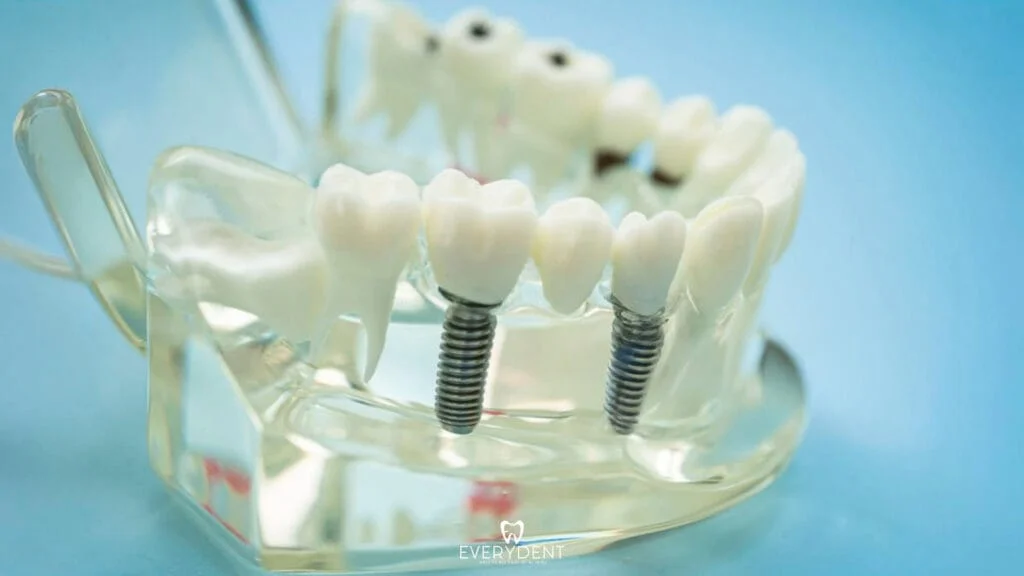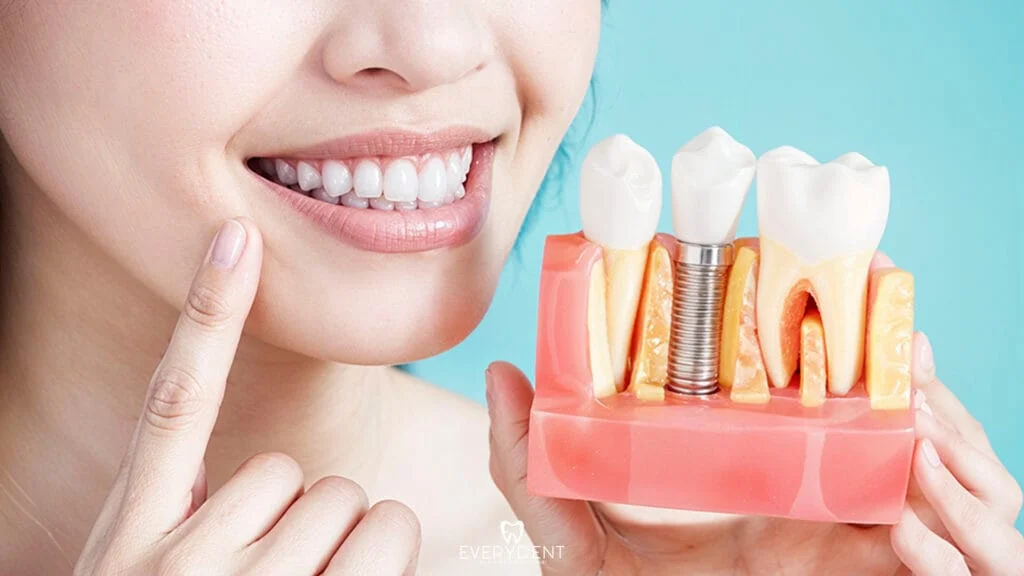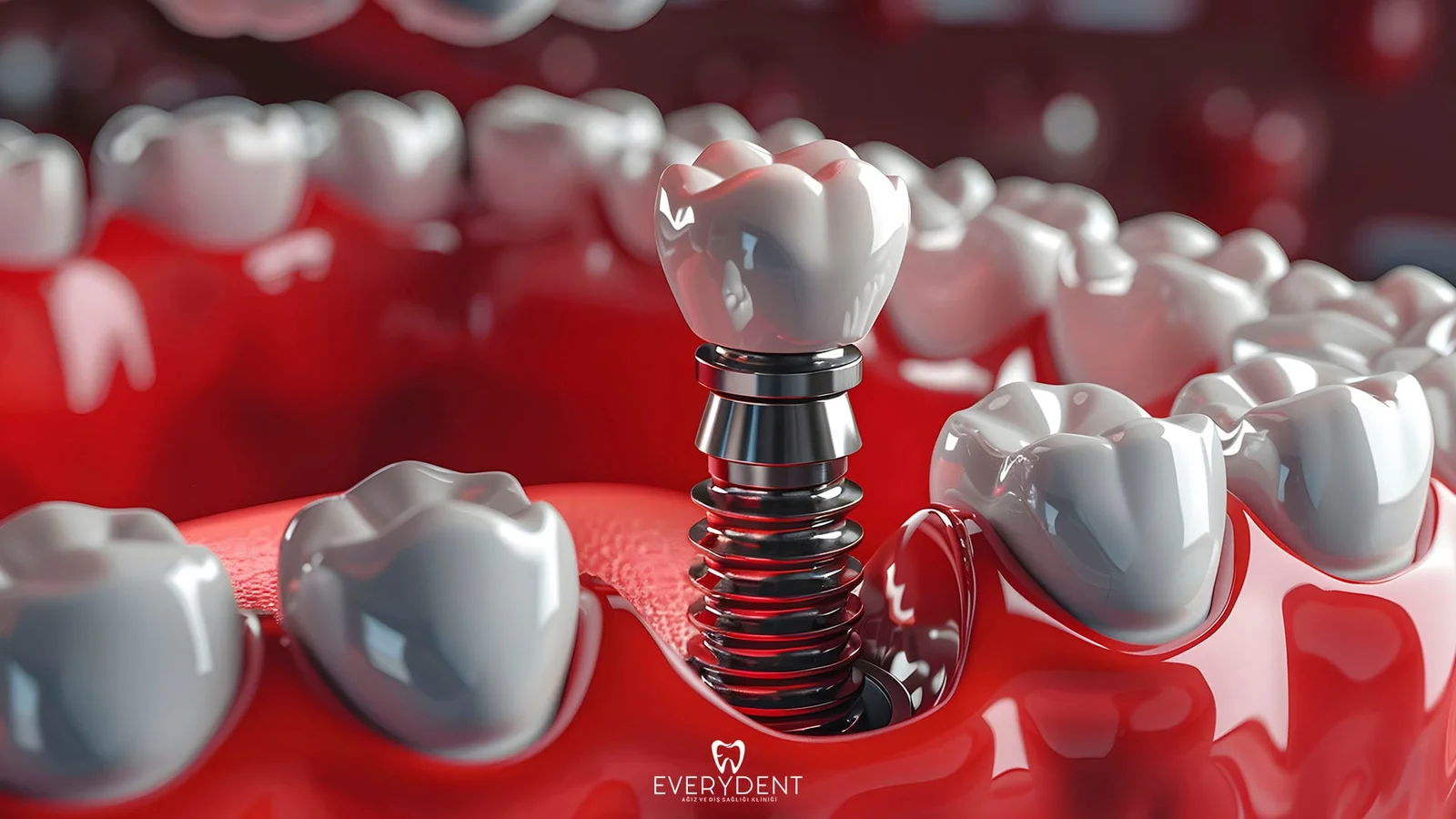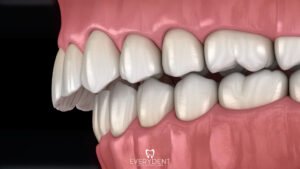Implant treatment is one of the most effective solutions in modern dentistry to replace missing teeth with natural tooth function and aesthetics. Today, thanks to the developing technology, implant treatment stands out as both a reliable and permanent treatment method. In this method, a screw made of titanium is placed in the jawbone and this screw acts like a natural tooth root, ensuring that the prosthetic tooth is firmly attached to the jaw. Dental implants have an appearance and use that is no different from natural teeth in terms of aesthetics and functionality.
Missing teeth not only have negative effects on aesthetics, but also on chewing function, speech ability and oral health. Missing teeth can cause loss of the jawbone, displacement of neighboring teeth and even digestive problems. For this reason, completing missing teeth with implant treatment is of great importance both in terms of protecting oral health and improving the quality of life of patients.
Dental implants offer the closest alternative to individuals’ natural teeth. The treatment process is planned specifically for the person depending on the condition of the jawbone, the health of the area where the implant will be made and the patient’s general oral health. Implant treatment is performed under local anesthesia and is usually a painless procedure. After the implant is placed, a certain period of time is waited for the bone to fuse with the implant. After this process is completed, the treatment is completed by placing a prosthetic tooth on the implant.
What is an Implant?
An implant is an artificial tooth root, usually made of titanium, that is placed in the jawbone to replace lost teeth. Dental implants take on the role of a natural tooth root and allow for the safe placement of prosthetic teeth. Implants are a widely preferred method in the treatment of missing teeth because they offer the closest solution to natural teeth in terms of aesthetics and functionality.
Since titanium used in implant treatment is a material compatible with the body, it easily fuses with the jawbone and allows for a long-lasting, solid tooth structure. This fusion process is called “osseointegration”. The jawbone reshapes around the implant and supports it like a natural tooth root. In this way, dental implants offer a much more stable and comfortable use compared to classical methods such as bridges and dentures.
Implant treatment not only eliminates aesthetic concerns, but also provides positive effects on chewing function, speech ability and oral health. Negative effects such as jaw bone loss that can be caused by missing teeth can be prevented with implants. In addition, since neighboring teeth are not interfered with during implant application, natural tooth tissue is also preserved.

Advantages of Implants
Dental implants offer many advantages over traditional dentures, providing an effective solution for completing missing teeth. First of all, since they offer the closest alternative to natural teeth, they provide a natural appearance in terms of aesthetics and provide high comfort during chewing. Implants, which have a more solid and fixed structure than dentures, are quite durable because they are made of titanium and can be used for a lifetime when properly cared for.
Implants also protect jawbone health; by preventing jawbone shrinkage that occurs after tooth loss, they create a pressure on the jawbone like a natural tooth root and prevent bone loss. In addition to their aesthetic and functional features, they also eliminate the loss of self-confidence brought about by tooth loss, and help individuals smile freely, speak and feel more comfortable in social life.
Implant Treatment Process
- Examination and Planning: The dentist first performs a detailed examination to evaluate whether the jawbone and gums are suitable for the implant. A treatment plan is created using the necessary imaging (panoramic x-ray or tomography).
- Surgical Procedure: This is the stage where the implants are placed in the jawbone. The procedure is performed with local anesthesia and is usually painless. After the implant is placed, a healing process is required for it to fuse with the bone.
- Healing Process (Osteointegration): It takes between 2-6 months for the implant to completely fuse with the jawbone. Completion of this process is important for the durability of the implant.
- Prosthesis Application: When the implant integrates with the jawbone, prosthesis tooth is placed on it. This tooth is specially designed to be compatible with the patient’s other teeth.
Who is Suitable for Implant Treatment?
Dental implant treatment is generally suitable for adult patients. More successful results are obtained in individuals whose jawbone has completed its development. However, some special conditions may restrict implant application. For example, the healing process may take a long time in individuals whose diabetes is not under control. Therefore, the dentist plans the treatment by taking into account the patient’s general health condition.

Implant Risks and Side Effects





